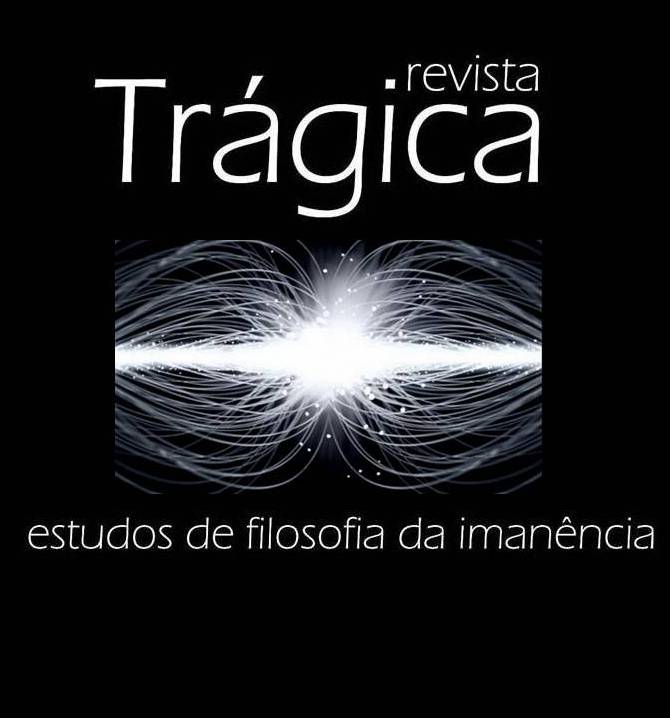LÍNGUA PURA E A LÍNGUA: um encontro (im)possível entre Benjamin e Lacan
DOI :
https://doi.org/10.59488/tragica.v9i2.26772Mots-clés :
Nietzsche, SpinozaRésumé
Este artigo tem por objetivo estabelecer uma aproximação, iniciativa ainda rara no campo filosófico e psicanalítico, entre o pensamento de Jacques Lacan e a Escola de Frankfurt, centrando a discussão nas concepções de língua e de linguagem presentes na obra de Walter Benjamin e na do psicanalista francês. Para tal, o autor se orienta pela leitura realizada por Agamben que destaca a ideia do surgimento da condição histórica do homem como sendo coincidente e inseparável do surgimento da significação na linguagem humana, no pensamento benjaminiano. A partir disso, é possível pensar, com Benjamin, outra linguagem, que ele propõe ora como anterior à história e à queda da linguagem no plano da significação, ora como posterior à história e, através desta, a ideia de uma “língua pura”. Seria possível, então, traçar um paralelo entre esta “língua pura”, benjaminiana, e a concepção de “letra” do pensamento de Lacan? Esta é a via aberta por este artigo.
This article has the purpose of establishing an approach – an initiative still rare in the philosophical and psychoanalytic fields – between the thought of Jacques Lacan and the Frankfurt School, focusing the discussion on the conceptions of language and idiom present in Walter Benjamin's and Lacan's works. To do it, the author will guide himself by Agamben's reading of Benjamin, which emphasizes the ideia of the origin of the historical condition of man as coinciding with and being inseparable from the emergence of signification in human language. From this, it will be possible to think with Benjamin about another language, which he sometimes proposes as something before history and language's fall into the realm of signification, and sometimes as subsequent to history – and through this, the idea of a “pure language”. Would it be possible, then, to draw a parallel between such “pure language” as put by Benjamin, and the conception of “Letter” in Lacan's thought? Such is the path opened up by this text.
Téléchargements
Publiée
Numéro
Rubrique
Licence
Les auteurs préservent les droits d'auteur et accordent à la revue le droit de première publication, le travail étant simultanément sous licence Creative Commons Attribution 4.0 International (CC BY). Cette licence permet à des tiers de remixer, d'adapter et de créer à partir du travail publié, en attribuant le crédit d'auteur et la première publication dans cette revue. Les auteurs sont autorisés à accepter des contrats supplémentaires séparément pour la distribution non exclusive de la version du travail publié dans cette revue (par exemple, publier dans un référentiel institutionnel, sur un site personnel, publier une traduction ou en tant que chapitre de livre), avec reconnaissance de l'auteur et de la publication initiale dans cette revue.












